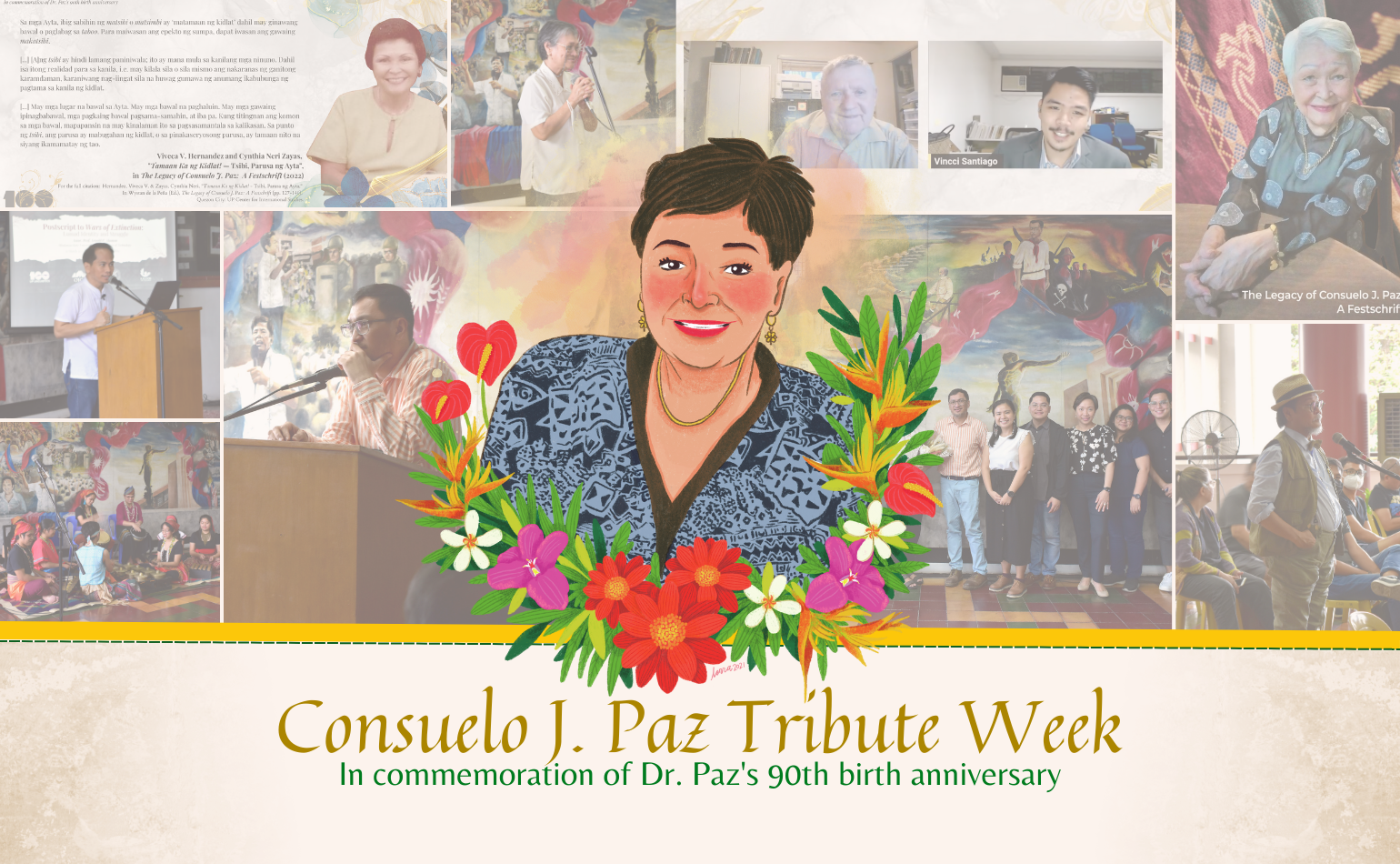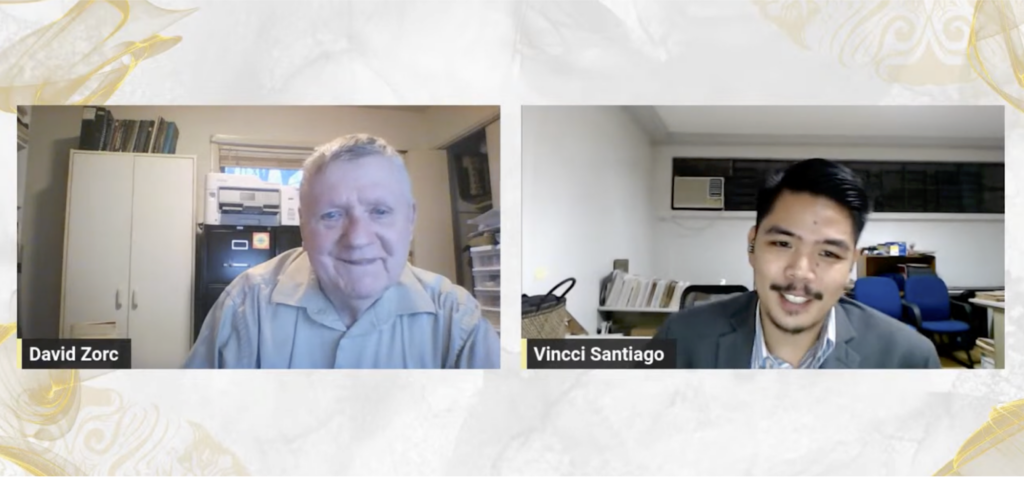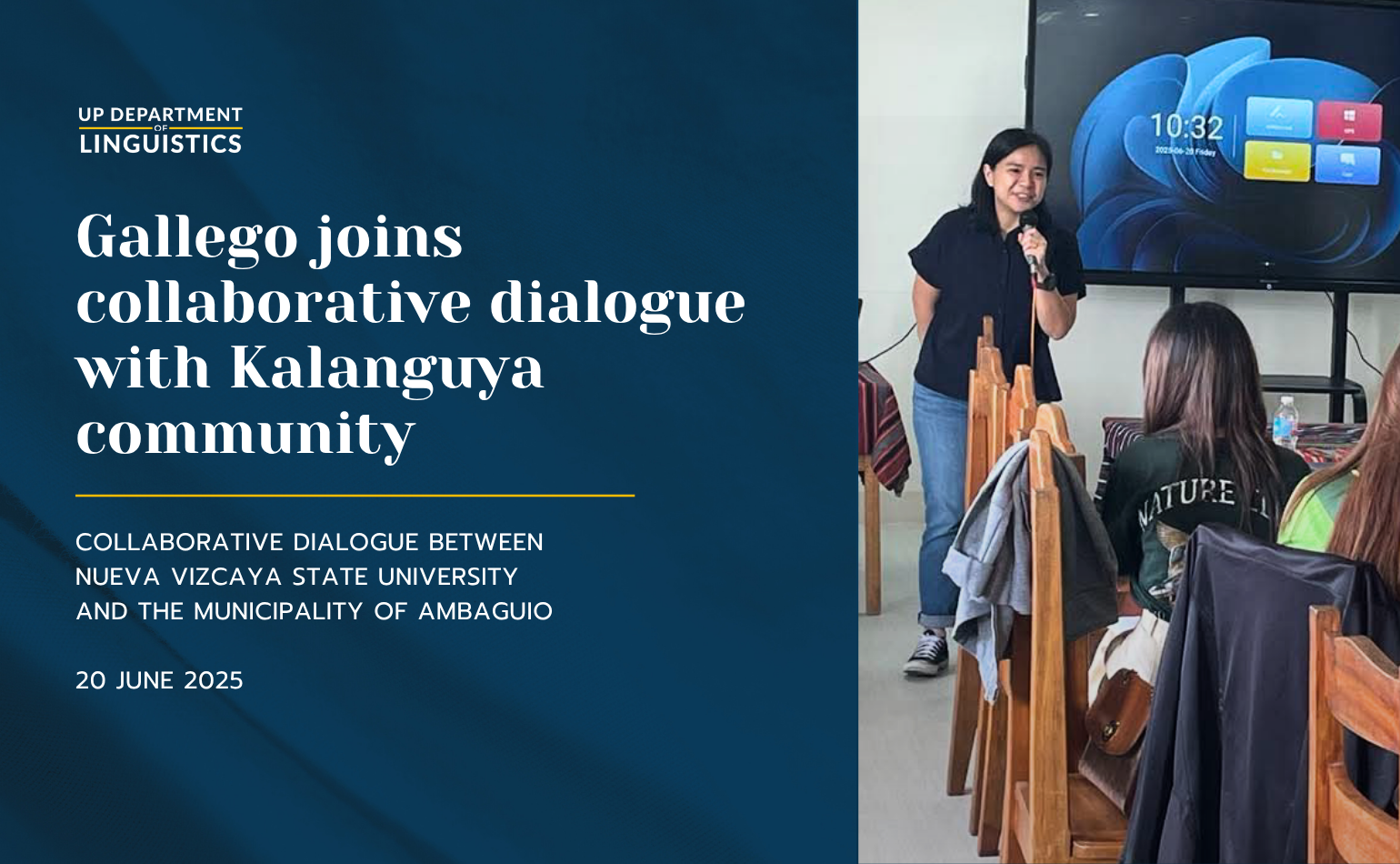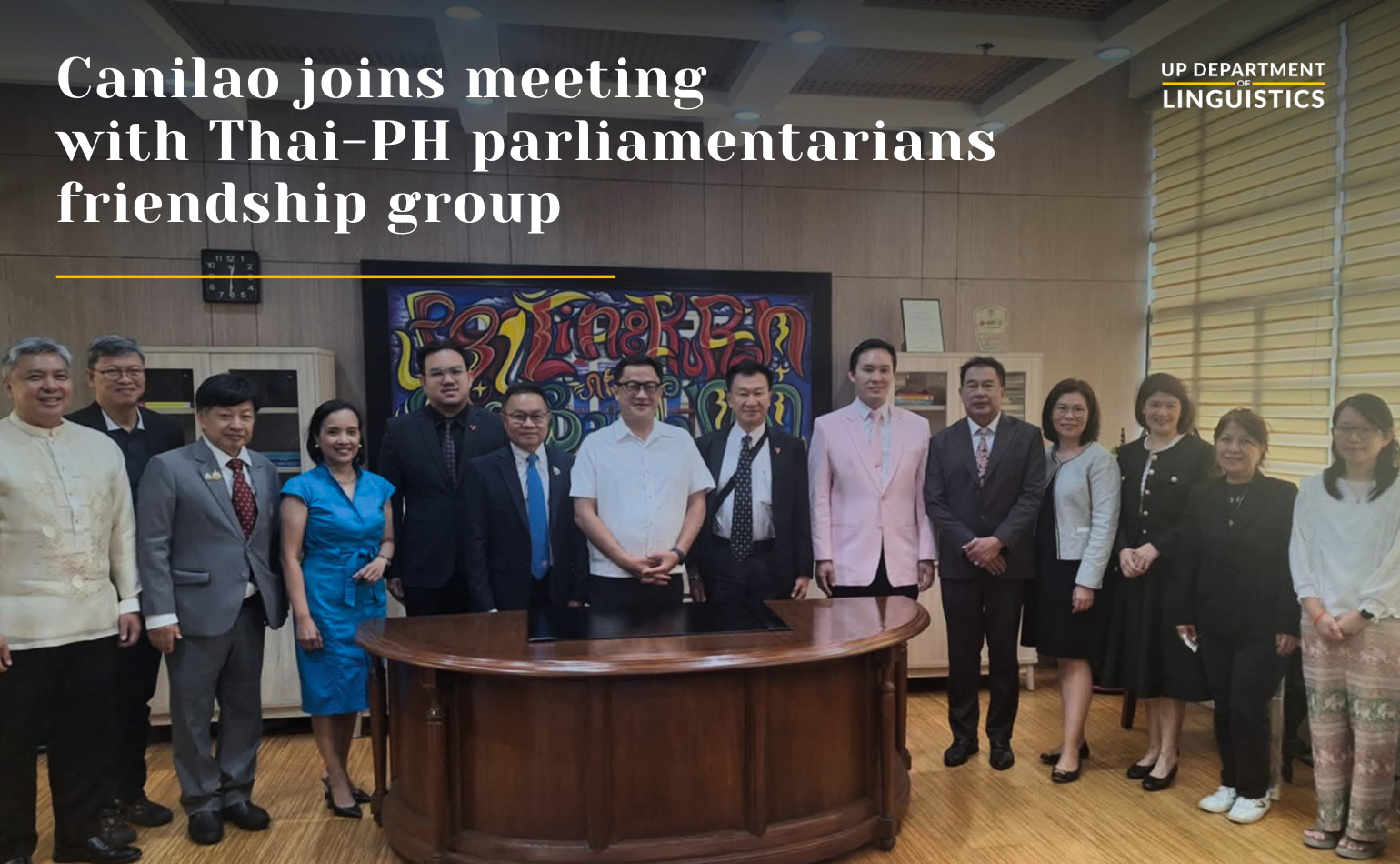
The University of the Philippines Department of Linguistics honored its former Chair and one of the brightest lights in the Philippine social sciences, Dr. Consuelo J. Paz, in a weeklong celebration. The celebration ran from March 13-17, 2023, and saw different people and organizations expressing their appreciation for Dr. Paz on her 90th birth anniversary week.
Dr. Consuelo J. Paz, known as the “Grand Dame of Philippine Linguistics”, served as Chair of the Department twice and as Dean of the College of Social Sciences and Philosophy (CSSP) from 1992-1998. The highlights of her deanship include the founding of the Center for International Studies (CIS) and the establishment of the Inisyatibo sa Pag-Aaral ng mga Etnolinggwistikong Grupo (IPEG), which later became the Programa sa Pag-Aaral ng Etnolinggwistikong Grupo (PPEG).
As a researcher, she published pioneering works in historical and comparative linguistics, sociolinguistics, and ethnolinguistics, while promoting ethnographic tools like fieldwork and participant observation. Dr. Paz was also among the key figures in the formation and development of Filipino as the national language.
The Department kicked off the celebration with an online lecture by one of the pillars of the study of Austronesian and Philippine languages, Dr. R. David Zorc. In his lecture titled, “Paz and PPH Four Decades Later: An Appreciation and a Look Inside the Kitchen”, Dr. Zorc gave a detailed background of his paper “Paz and PPH: Four Decades Later”. His lecture tackled the needs and necessities when studying areas where Dr. Paz made some of her greatest contributions: “reconstructing the […] phonology and accent of the Proto-Philippine language, the subgrouping of Philippine languages, and the reality of a proto-Philippine node.”
In his paper, Dr. Zorc praised the work of the late Dean, especially her pioneering 1981 publication, “A Reconstruction of Proto-Philippine Phonemes and Morphemes”. It was a remarkable feat, he noted, especially given that her work, comprising the data-determined etymologies from 29 languages, was done well before resources like the internet, the Austronesian Comparative Dictionary (ACD) and the Zorc Data Sheets Philippine Etymologies (ZDS) were all available. “It was absolutely wonderful and fitting that a Filipino scholar (rather than an American or European) embarked on this project,” he said.

Dr. Zorc’s paper was released as part of the Special Publication No. 18 of the Department’s official journal, The Archive, on March 14, 2023. The foreword to this special publication was written by the current Chair of the Department and historical linguist, Dr. Maria Kristina S. Gallego. In her foreword, she commended Dr. Zorc for revisiting and highlighting Dr. Paz’s work, while describing her as a “…a linguist whose works not only contributed to establishing a stronger foundation for Philippine linguistics, but also became instrumental in the advancement of Filipino as the National Language of the country.” The special publication can be accessed here.
A social media campaign was then launched, which ran from March 15-16 and featured snippets from essays by members of the Department first launched in the “The Legacy of Consuelo J. Paz: A Festschrift,” by the UP Center for International Studies (CIS) in 2020. The Festschrift, which was edited by Professor Wystan de la Peña of the UP Department of European Studies, was released in Dr. Paz’s honor this year as a free ebook, which can be accessed here. It includes essays from the likes of Dr. Maria Kristina S. Gallego, Dr. Jem R. Javier, Associate Professor Jesus Federico C. Hernandez, Dr. Viveca V. Hernandez, and the late Dr. Jonathan C. Malicsi.
Finally, the weeklong celebration culminated in the 3rd Consuelo J. Paz Lecture on March 17, delivered by Mindanao State University Iligan Institute of Technology (MSU IIT) associate professor, Arnold Alamon, a former student of Dr. Paz.
In a talk titled, “Postscript to Wars of Extinction: Lumad Identity and Struggle,” Prof. Alamon talked about the politico-historical events that influenced the formation of Lumad identity, and their resistance to aggression by both colonial powers and local elites on their ancestral lands.
The encounters that shaped Lumad identity began in 1906 with Datu Mangulayon of the Manobo Tribe slaying American occupation era colonial governor Lt. Francis Bolton and continues all the way to the present, in what he calls the post-Indigenous Peoples Rights Act (IPRA) era. Despite the existence of this landmark document respecting indigenous people’s right to self-determination, Prof. Alamon claimed that the dispossession and violence against the Lumads continues to this day, and is met by “valiant, creative resistance that doesn’t always win yet persists.”
His interest in the Lumad and their plight, however, would not have been sparked had he not worked under Dr. Paz as part of IPEG. His fieldwork to Davao del Norte with the intent to study the cosmology and language of the Ata Manobo introduced him both to the concept of the “Lumad” and their revolutionary struggle. ““Knowing how she was a champion of the social sciences in service of the Filipino people, our gathering here together would surely make (Dr. Paz) mighty pleased,” he concluded.
Prof. Alamon’s lecture was followed by a reaction given by UP Department of Anthropology assistant professor, Reginaldo Cruz, who talked more about the issues related to the use of the term Lumad in representing the cultural and ethnolinguistic diversity in Mindanao as well as the similarities in the struggles that minoritized groups face. The recording of the 3rd Consuelo J. Paz Lecture can be viewed at the Department’s Facebook page and YouTube channel.
Published by Mai Andre Encarnacion



